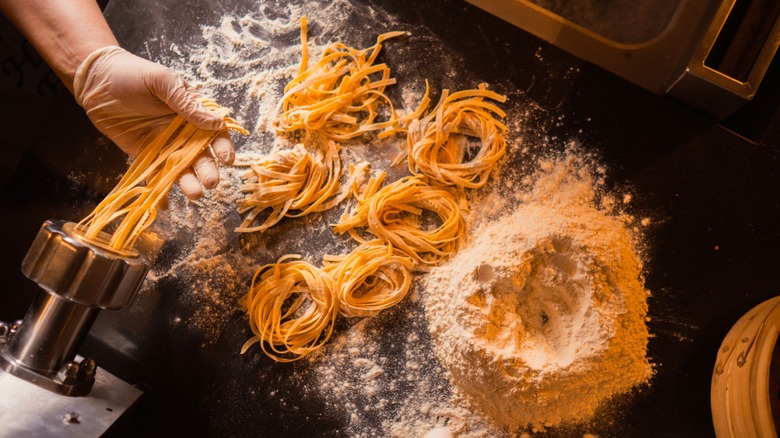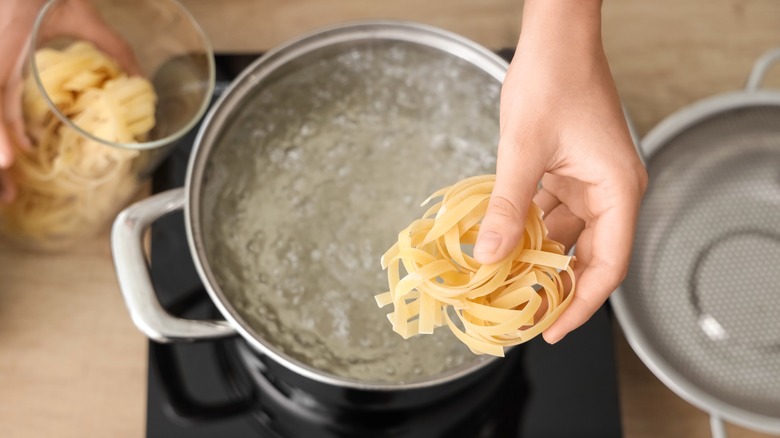Yes, You Can (And Should) Freeze Fresh Pasta. Here's How To Do It
Even professional chefs like José Andrés use dried pasta on occasion, but everyone knows that when you want something truly special, making homemade pasta is the way to go. Still, it's quite the commitment. Kneading and rolling the dough until you can finally cut fresh noodles is an endurance trial, and by the time you're done, even throwing together a quick and easy pasta dish can feel like a chore too exhausting to take on. The problem is that fresh pasta only lasts for a day or so in the fridge, but according to Anthony Scotto Jr., freezing it allows you to enjoy it on your time without sacrificing quality.
As the restaurateur behind Avenue T Hospitality Group, which helms Luogo and Pelato restaurants, Scotto knows all too well that fresh pasta doesn't last long. "I usually recommend drying it and packaging it tightly to avoid freezer burn," he said. You won't need to dry the pasta to the point that it is shelf stable, but you'll still need to dust it with flour and let it sit at room temperature for about an hour. Once it is partially dry, you can lay it out flat or arrange it into little rings. However, don't wait too long to get your noodles in the icebox. "Definitely within a couple days," Scotto advised. "Or you risk freezing a product that is not worth saving."
The chief consideration regarding how to freeze fresh pasta properly lies in minimizing air exposure once it goes into the freezer, so Scotto recommended a vacuum sealer. "The less air, the better," he said, though you should take care not to crush the noodles. Done correctly, you'll have fresh pasta on hand for roughly eight months.
Avoid defrosting frozen fresh pasta
Many fresh foods that have been frozen should be thawed before cooking, but Anthony Scotto Jr. indicated this isn't the case with pasta. "I generally boil it from frozen to avoid sogginess in the defrosting stage," Scotto shared.
Understandably, some folks might think that boiling frozen pasta would mean waiting longer for it to reach that perfect al dente texture. However, Scotto explained that the extra time is minimal. "With it being fresh pasta, it cooks so quickly that freezing it doesn't factor in too much with the cook time," he said. You likely only need to add on about a minute — it's best to taste test during the boiling process to avoid ruining the texture of those noodles you worked so hard to create from scratch.
It's worth noting that although freezing works well with some noodles, the process is less effective with others. "Pastas with a thicker gauge, such as penne or rigatoni, will hold up better," Scotto said. "We don't have much success with freezing thinner pastas such as angel hair." While it may not be the perfect solution for all types, freezing sturdier varieties is a game-changer that gives you the flexibility to enjoy fresh pasta on your terms.

